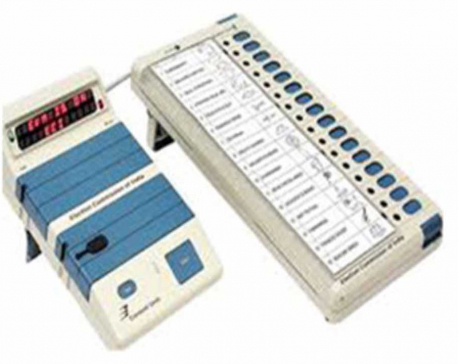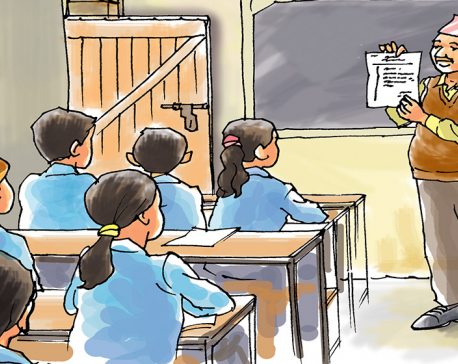
OR
Dr KC’s hunger strike.
With none of his major demands addressed, Dr Govinda KC, an orthopedic surgeon at the Tribhuvan University Teaching Hospital, has threatened to start a new fast-unto-death, his 12th, from October 6. It is a shame that an aging, diabetic doctor has had to repeatedly put his life on the line to get the parliament to enact what should be commonsensical health reforms. In a functioning democracy, Dr KC’s noble initiative of bringing cheap and reliable healthcare to the doorstep of each and every Nepali would have been readily embraced by political parties and their MPs. Yet in Nepal, a country whose democratic character has been steadily eroded by corrupt politicians and bureaucrats, these vital medical reforms have found few takers. In all our major parties, and especially in CPN-UML, there are powerful interest groups that are working more for the filthy-rich medical mafia than for the common folks they claim to represent. The parliament on Tuesday shamelessly passed the amended Medical Education Bill, without any deliberation. Following Dr KC’s 11th hunger strike, Prime Minister Sher Bahadur Deuba had instructed the parliamentary committee that amended it not to table the compromised bill in the full parliament. But with the country’s focus firmly trained on the third phase of local election, the bill was not just tabled but also surreptitiously passed.
The new bill now allows new, and unnecessary, medical colleges in Kathmandu, and for these colleges to arbitrarily fix MBBS fees. On Sunday, even before the passage of the bill, the Kathmandu University had published new fee structure for its MBBS and BDS programs. This new fee structure brazenly breached the fee structures set by the government last year in response to Dr KC’s demands. For instance, according to the new KU provisions, medical colleges under it will be able to charge their students fees ranging from a minimum of Rs 1 million to an unspecified maximum amount. But the government had last year capped the MBBS fees at Rs 3.85 million for medical colleges inside Kathmandu valley, while those outside could charge up to Rs 4.24 million. With the removal of the maximum ceiling, the medical colleges will be able to exploit medical students as much as they like. Dr KC argues that medical students who have to fork out so much on education will spend the rest of their professional lives trying to recoup their education cost, and profit rather than service will be their guiding motive.
Medical education has become an extremely lucrative business and as the practice of medicine becomes more and more commercial, the gap in health outcomes between the rich and the poor and between the rural and urban areas is growing. But the promoters of medical colleges, including senior political leaders, could not care less. For them, again, medicine is no more than a business. It is this corrupt mentality that Dr KC rails against. Dr KC’s fight can often seem futile: the fight between a tiny David, who has no more than his unshakable convictions as weapons, against the colossal Goliath that is the medical mafia. But Dr KC is not alone in this fight. Millions of Nepalis support his crusade, in one way or another. The fight he is waging may be long and hard but it is not unwinnable.
You May Like This

Time to declare EVMs’ end
The massive scale of resource waste incurred by a single project, the Election Commission's electronic voting machine (EVM) endeavour, has... Read More...

Nepal-Qatar Relations: Prioritize promoting interests of Nepali migrant workers
The two-day state visit of Qatar’s Emir Sheikh Tamim bin Hamad Al Thani, the first by a head of state... Read More...

Take necessary measures to ensure education for all children
Thousands of children, with bright minds and hopeful futures, are still denied the fundamental right to education in Sarlahi district... Read More...





Just In
- EC decides to permit public vehicles to operate freely on day of by-election
- Fugitive arrested after 26 years
- Indian Potash Ltd secures contract to bring 30,000 tons of urea within 107 days
- CAN adds four players to squad for T20 series against West Indies 'A'
- ‘Precast' technology introduced in the construction of bridges along Muglin-Pokhara road
- Leopard attack injures young man in Kanchanpur
- SC rejects writ petition filed against Home Minister Lamichhane
- Nepal and China sign two agreements in the presence of Finance Minister Pun














Leave A Comment